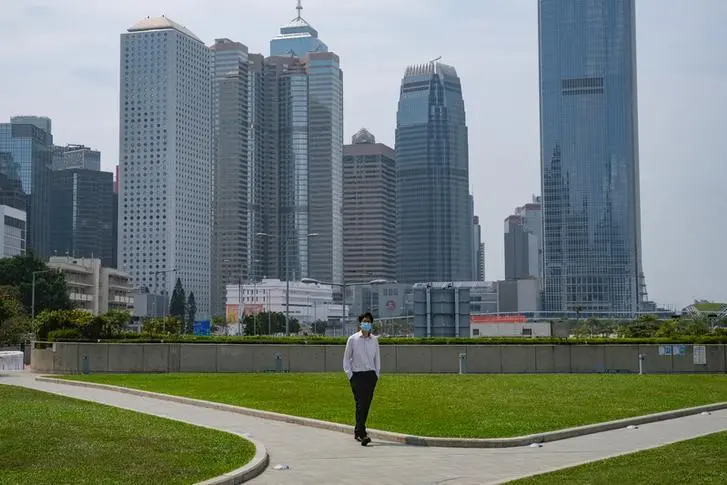PHOTO
(The author is a Reuters Breakingviews columnist. The opinions expressed are her own.)
HONG KONG - Hong Kong’s business quandary is only getting harder. The rule of law suffered a fresh setback in the Asian financial hub as Beijing empowered the local leader to bypass the courts and remove legislators. It puts added pressure on the city’s international financiers to consider their choice of headquarters, but they cannot easily leave en masse the way lawmakers just did their chamber in protest.
Carrie Lam, the city’s chief executive, dismissed four pro-democracy officials from the 70-member Legislative Council for actions essentially deemed to be unpatriotic. The move came after China’s parliament ruled that she could do so unilaterally. Their 15 remaining colleagues resigned in solidarity.
International blowback persists. Britain’s foreign minister warned that the Legco disqualifications undermined Hong Kong’s long-term stability. Washington recently imposed sanctions on four more Chinese and Hong Kong officials over their roles in curtailing political freedoms. And the U.S. national security adviser said on Wednesday that “One Country, Two Systems” – the governance model enlisted when Britain returned the territory to China – “is now merely a fig leaf covering for the CCP's expanding one party dictatorship in Hong Kong.”
On the heels of the draconian anti-dissension measures imposed in July, this latest episode firmly establishes the corporate community’s awkward position. Cities from Tokyo to Sydney have made pitches as alternatives, but higher taxes and cultural differences are among the deterrents. Perennial rival Singapore is the most likely alternative, but distance from China is a drawback. There is also the lurking fear that any big move would risk riling Beijing. HSBC and Standard Chartered, both heavily exposed to China, signed up in support of the national security law without having seen it.
As concerned as the city’s business leaders and financiers may be about political developments, the hard truth is that it is easier and more convenient to operate in Hong Kong than elsewhere in the region. That is not an indefinite advantage. A survey conducted by the American Chamber of Commerce in Hong Kong this summer found that judicial independence was among respondents’ biggest concerns. As other freedoms erode, it sounds like that will be the indicator of when the city’s rating changes from “hold” to “sell”.
CONTEXT NEWS
- Pro-democracy opposition lawmakers in Hong Kong said on Nov. 11 that they would resign en masse to protest the dismissal of four of their legislative colleagues after Beijing gave the city’s chief executive the power to expel members without having to go through the courts.
- The four dismissed lawmakers were previously disqualified from running again for the Legislative Council in elections originally scheduled for September, which were postponed by Chief Executive Carrie Lam for one year because of the pandemic.
- The chief executive has been given permission to expel legislators if they have been deemed to be advocating Hong Kong independence, colluding with foreign forces or threatening national security.
(The author is a Reuters Breakingviews columnist. The opinions expressed are her own.)
(Editing by Jeffrey Goldfarb and Katrina Hamlin) ((jennifer.hughes@thomsonreuters.com; Reuters Messaging: jennifer.hughes.thomsonreuters.com@reuters.net))





















